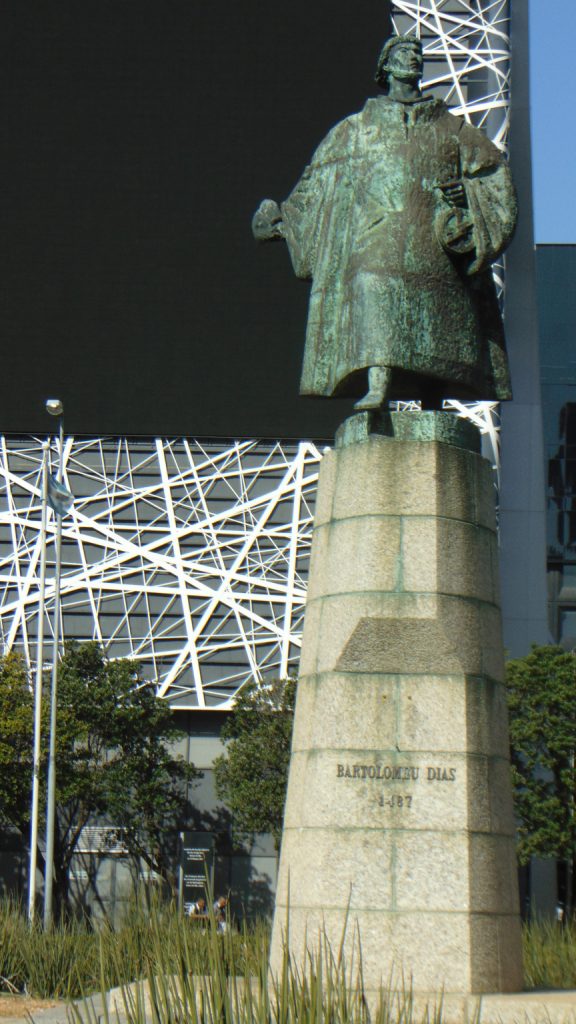The Spice Wars Part Thirteen – Hustling for Power
February 20, 2022Hidden History – Liberation Struggles
March 21, 2022
By Satish Sekar © Satish Sekar (February 14th 2022)
Changing Circumstances
The Portuguese had a huge advantage over European competitors – a de facto monopoly on trading nutmeg and mace in the 16th Century. The rest of Europe was dependent on Portugal to provide the spice to them as only the Portuguese had the route to the Banda Islands. Once Portugal decided to ally with Spain, it meant that they did not want to trade with the Dutch, which could have excluded the Dutch from the nutmeg trade. That was something that Dutch merchants were not prepared to contemplate.
They found routes to the islands – the first trips were long, arduous and expensive, but such was the lucrative nature of nutmeg trading that these trips still proved worthwhile and gave rise to more trips. It also showed the Portuguese that they needed monopoly agreements to exclude the Dutch. And that applied to the English too. They had wasted their advantage. Negotiation was the only route open to the Portuguese.
Monopoly
The Banda Islanders did not want to grant a monopoly to anyone and even saw the Dutch as their protectors. But the Dutch wanted a monopoly too. However, the terms they wanted were worse than the Portuguese had offered. And Asians were another alternative. Free negotiations would not yield the favourable terms the Dutch demanded. The Banda Islands were absolutely crucial for the Dutch merchants and then the Dutch East India Company (DEIC).
The DEIC needed the monopoly on the nutmeg trade and they did not care how they got it. The Banda Islanders had no rights the DEIC would respect. In fact, they did not respect the rights of their European rivals either.
Squabbles for Empire – A New World Order?
Although the British Empire would become the biggest the world had ever seen, it seemed insignificant when the East India Companies were founded. This applied to the Netherlands too. At that time the Spanish and French empires were dominant and Portugal wasn’t far behind. The Habsburg Empire was the dominant force in the East of Europe with Russia and the Ottomans forces to be reckoned with. The Mughal Empire was also a major player.
Beginning with Babur in 1526, it remained a strong power in India and nearby regions throughout the struggle for supremacy of the Banda Islands and various conflicts of the emerging Dutch. The Emperor Aurangzeb (the sixth Mughal Emperor) died in 1707 – he was the last of the strong and great Mughal Emperors. Aurangzeb’s father, later deposed by his son and kept prisoner from 1658 to his death in 1666, Shah Jahan. also proved to be another thorn in Portugal’s side, expelling them from their Bengal base, Port Hughli-Chuchura, in 1632.
Anglo-Mughal Empire Tensions – Aurangzeb
After failing to gain a governmental decree permitting them to trade in his empire, the East India Company (EIC), which was established in England in 1600 began the Anglo-Mughal War in 1686. Aurangzeb’s forces proved more than a match for the English. In 1690 the EIC gave in, prostrated themselves at the feet of the Mughal Emperor, paid an indemnity of 150,000 Rupees, equivalent to around $4.5 million today, for their foolhardiness and swore to refrain from any such folly in the future.
In September 1695 Aurangzeb was enraged by the actions of British pirate Henry Every who captured the Emperor’s ships returning from a pilgrimage to Mecca and plundered them. It was one of the largest hauls ever seized by pirates. The EIC agreed to pay around £600000 compensation – the value of the stolen goods, which is the equivalent of almost £100 million in today’s money – after a furious Aurangzeb threatened to shut down their factories and imprisoned their workers.
Despite what was then the largest manhunt ever conducted with a reward of £1000 offered by the EIC and Privy Council, Every evaded capture. The crime adversely affected Anglo-Mughal relations.
In 1702 the uneasy relationship between the Mughals and the EIC flared up again. Aurangzeb had Fort St George in Chennai (Madras) besieged for three months until the EIC sued for peace through Sir Thomas Pitt, the President of Madras from 1698 to 1709. Nevertheless, a new European Order was on the cards as the old European powers battled each other and emerging competitors.
England and the Netherlands fitted the latter category. Their rivalry resulted in four Anglo-Dutch Wars and the second was about the nutmeg trade.

